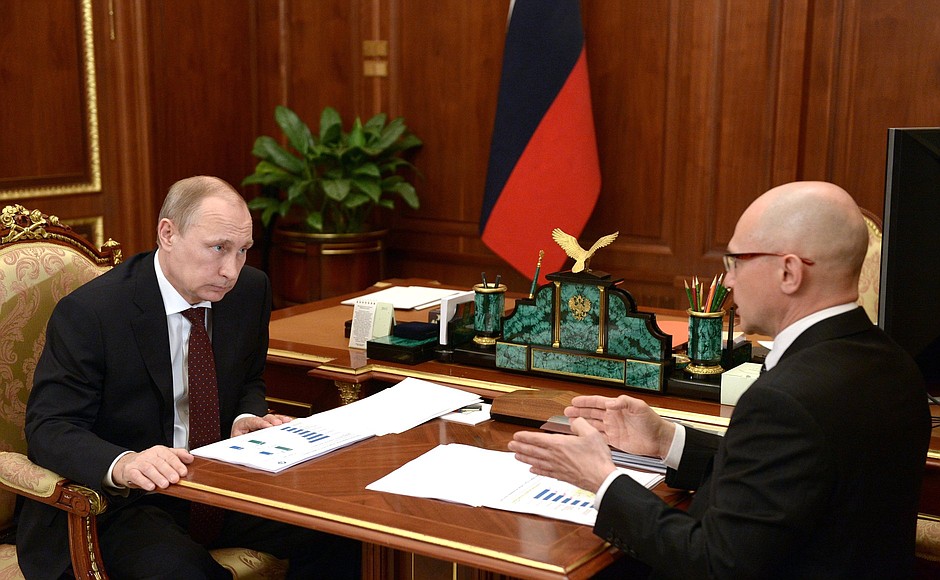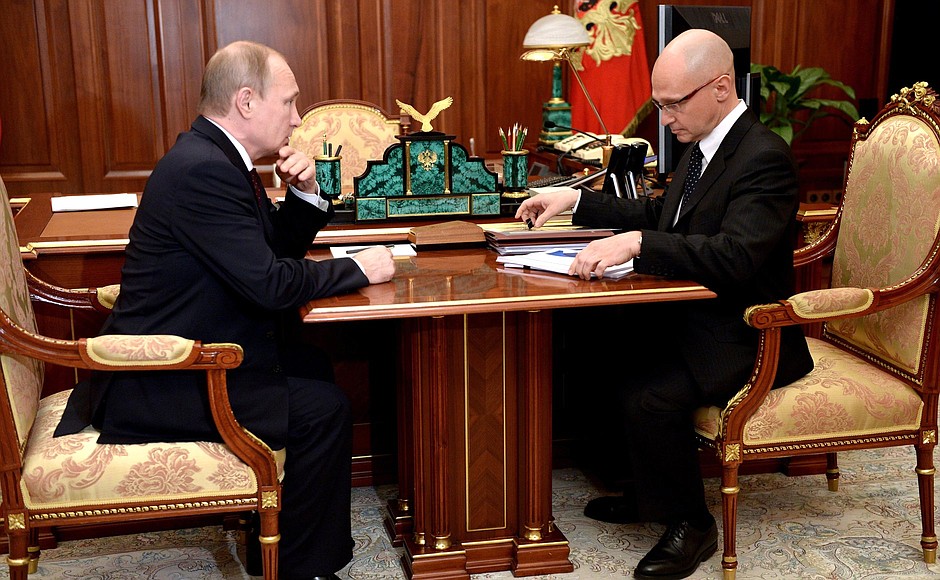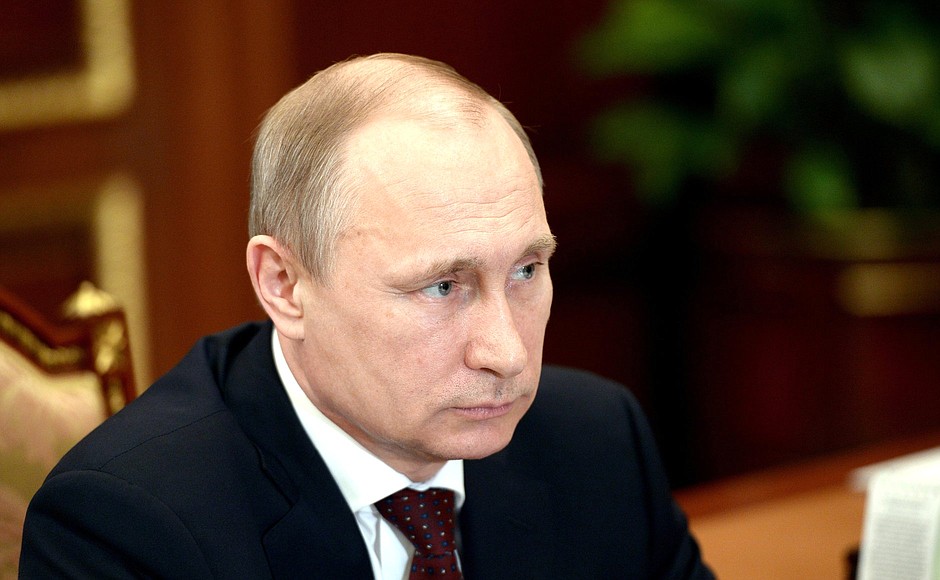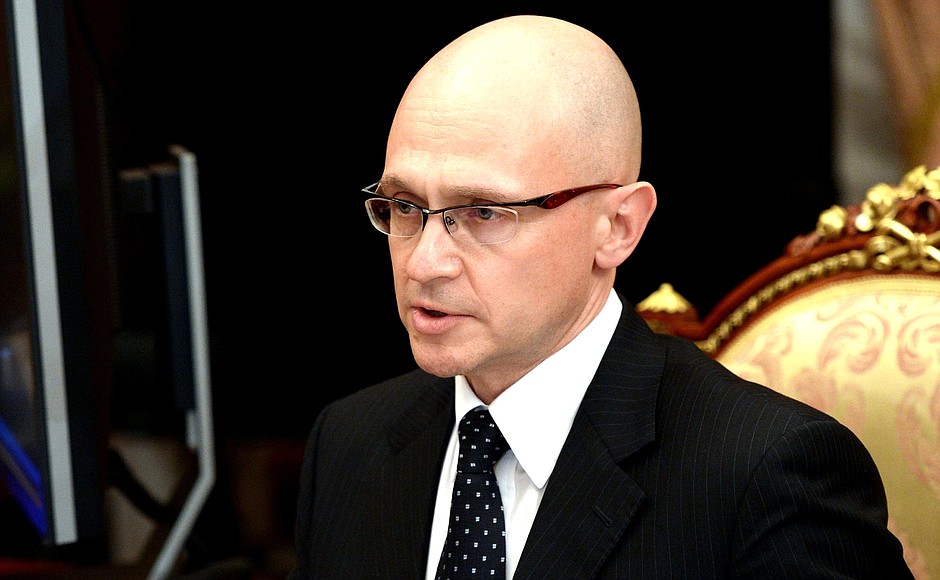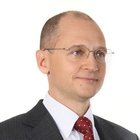President of Russia Vladimir Putin: Mr Kiriyenko, naturally, I would like to hear about the company’s performance results for 2014, including the overall volumes produced and supplied to the market. The second question is about development: what is being done to develop nuclear power generation here and abroad.
Rosatom State Corporation CEO Sergei Kiriyenko: Mr President, we have prepared this presentation for your convenience.
First, we have just summed up last year’s results. We met all the targets. We have fulfilled the long-term programme by about 116 percent. Power generation is the most important aspect. This was a record year: we generated 182 billion kWh, which is almost 14 billion more than planned. This has never happened before. This was a record year in the entire history of the industry.
Vladimir Putin: Do you remember the share of nuclear power in the overall structure?
Sergei Kiriyenko: Right now, it accounts for about 17 percent of the total power generation, Mr President.
Vladimir Putin: So it has gone up.
Sergei Kiriyenko: Yes, it has. The figure was 15 percent. It is growing, now it is slightly more than 17 percent. Labour productivity has grown by 11.7 percent last year, salaries – by 9.5 percent. This is important; we are constantly making sure labour productivity grows faster than salaries. So far, we have managed to maintain this growth.
Vladimir Putin: The average salary is 60,400 rubles, right?
Sergei Kiriyenko: Yes, that is the average. Our revenues have also gone up considerably. I have just said it was a record year in terms of energy generation. However, it is important that we always make sure that production does not grow at the expense of our operations’ reliability and stability. Last year we did not have a single significant deviation; this is called ‘zero level’ on the international scale. There was not a single incident that could affect safety.
Another important thing. There is an independent international organisation of nuclear power plant operators that keeps record of all the nuclear power stations in the world. The reliability of Russian nuclear power plants is about two times greater than that in Europe or the United States of America.
Vladimir Putin: I believe this was not the first year; the situation has developed over several years.
Sergei Kiriyenko: True, this was not the first such year. We have been operating steadily throughout these past years, Mr President.
As for commissioning: we had two starts, including the first criticality of the Beloyarsk unit.
Vladimir Putin: In November.
Sergei Kiriyenko: Yes. It is very important that we commissioned the unit at the Rostov Nuclear Power Plant ahead of schedule. It was scheduled for the first quarter of 2015, while we commissioned it in November – that was the first criticality, then in December we had the first start. What is also important is that we managed to somewhat cut the cost, saving about 2 billion rubles at the start of the block.
Over to our international activities, Mr President. We, of course, have set ourselves the task of expanding our portfolio of foreign orders. When we planned $72 billion for the year before last (part of the orders in that portfolio is being implemented; we have completed over $5 billion worth of contracts, which leaves us $67 billion), we set ourselves the task of reaching $98 billion, which was not easy given the political pressure and attempts to limit our activities. Nevertheless, we now have $101.4 billion worth of orders in our portfolio, which represents a growth of $34 billion in one year.
We added two more units to Bushehr project, where we have intergovernmental agreements for 8 and a contract for 4 units. We only speak of the units where the prices have been set and actual works have practically begun. There are two extra units in Hungary, two more in Kudankulam; as you may remember we signed a ‘road map’ for 12 units there during your visit, but at this point we are only taking into account these 2 units. Thus, our portfolio has grown significantly, which, of course, provides a stable workload for our facilities, both in the atomic industry and in related sectors.
This year we have signed an intergovernmental agreement with Jordan and we have chosen a good site.
There is one important thing about Hungary. It is clearly a case of attempted pressure. Even the Financial Times tried to publish a report that the European Union turned down the Hungarian Government’s request for approval. We got a confirmation from the Hungarian Government that everything has been approved the way we agreed. The volume of work is large: construction of a nuclear power plant, fuel supply and servicing – a significant portfolio. Everything has been confirmed and approved and the contract is coming into effect.
Vladimir Putin: We offer good terms, and we use the latest technology, so if anyone had forced our partner to turn down the contract (I believe this could have been done), this would have been very detrimental to the national interests of Hungary itself.
Sergei Kiriyenko: Hungary itself, of course. I have to do the Hungarian Government justice for the way it insisted on implementing the contract. We understand, of course, Mr President, that it is very important for us to maintain our costs in order to remain competitive, so that all our offers prevail even in conditions of political pressure. Therefore, as the following slide shows, we have set ourselves the internal target of cutting costs by 10 percent every year. This covers all the key figures: fuel fabrication, Uranium production, power generation and waste recycling – an average 10 percent. In the past year, we cut our costs from 15 to 7 percent. The cost of one kilogram of Uranium or one kilogram of the fuel we produce has gone down by an average 10 percent. It was mainly possible due to the competitive environment we have created everywhere.
I reported earlier, Mr President, that we made an effort to eliminate monopolies, and we are closely monitoring this. Deliveries from Russian facilities are growing every year. Currently, Russian facilities supply 97 percent of all the master equipment, and it is not just one enterprise. They are all Russian, and a tender always involves 2 or 3 companies. As a result, the situation with long-lead items (this is the most complicated equipment: reactor vessels, turbines, steam generators, main pumps and pipelines) is such that in 2014 we bought the main unit equipment set 11 percent cheaper than in 2007. Considering inflation, it should have cost us 74 percent more, and we paid 11 percent less, which is a saving of 85 percent. This makes it possible for us to stay competitive. Such complicated purchasing system requires constant efforts, of course, but we have shifted to open bidding and developed a transparent system
This transparent purchasing system alone made it possible to save 34 billion rubles last year. Overall, we have saved a total 250 billion since we introduced it.
Vladimir Putin: I know you pay significant attention to personnel training.
Sergei Kiriyenko: Yes, we do, Mr President. Thank you very much for the decision to set up the National Nuclear Research University – it is our base. We cooperate with all universities, but MEPhI is the principal one. It is very important for us that it has branches in all main cities, which makes it possible for young people to study close to home. Besides, each branch has some area of specialisation: the ones situated in nuclear centres focus on the military side, of course, while those located in civilian cities specialise in civilian areas.
It is a welcome fact that the competition to enter these universities is constantly increasing, as does the level of applicants’ qualification, meaning the EGE (national final school exam) results. Previously, there was growing competition to departments training specialists in finance, economics or law. It is important that year after year we now see growing numbers of young people applying to study as, say, nuclear power station operator, product engineer or industrial engineer. The demand for such specialists in the world is also growing. One of the first issues we discuss in any place where we plan to sign an agreement…
Vladimir Putin: …is personnel training.
Sergei Kiriyenko: Yes. When we met with the Prime Minister of Jordan, both the Prime Minister and the King of Jordan asked the same question: “Can you take on more students?” As of this year, they are asking us to double the number of Jordanian specialists we would train. The same is true of Vietnam and Turkey. Therefore, everything is fine.
Vladimir Putin: And you continue actively working with science.
Sergei Kiriyenko: Yes, we do. There is one area of science –everything that has to do with getting rid of the old heritage we have accumulated. I would like to report that in 2014 we completed a very important job. As you may remember, you resolved to make us responsible for the inactivation and disposal of nuclear powered submarines that are out of service, along with old fuel. We accumulated a lot during the Soviet years, specifically in the Far East. Last year we completed this project, we removed the last batch of waste fuel, including contingency fuel.
Vladimir Putin: You even involved experts from abroad.
Sergei Kiriyenko: Yes, they helped us. This is a key issue. We removed 41 trainloads of fuel. Thus, there is no waste or contingency fuel left in the Far East. The submarines are operating, new fuel will be made available, but now it will be delivered directly to the site, in other words the danger…
Vladimir Putin: This is an important job that took several years to complete and has seriously improved the environmental situation in the Far East. This is very good. Thank you.
Sergei Kiriyenko: We are doing the same in the North.
<…>
